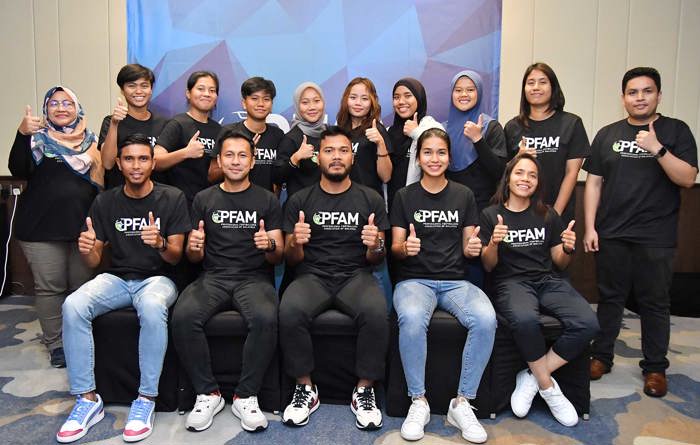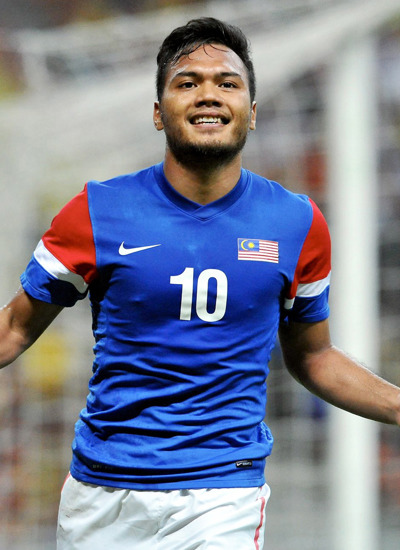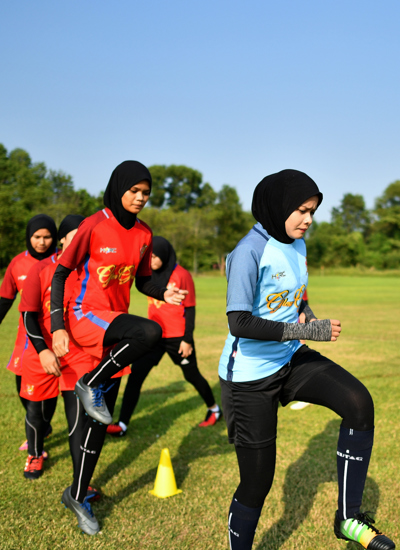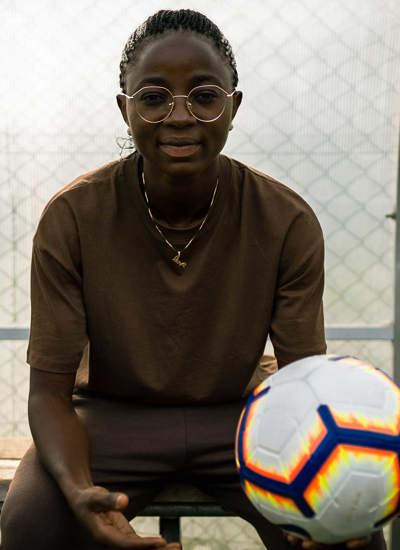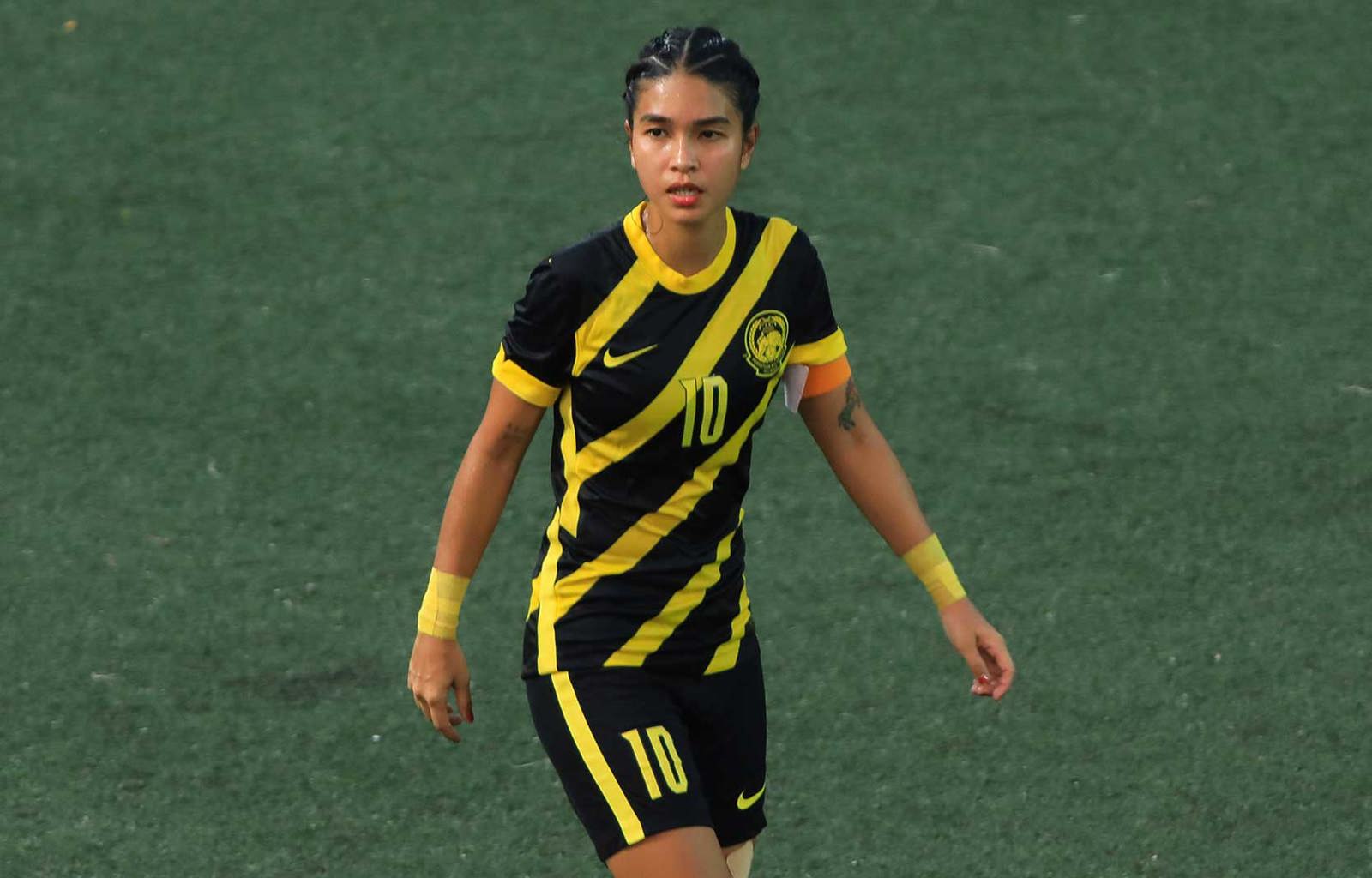

About
Steffi Sarge Kaur
Steffi Sarge Kaur (34) has captained Malaysia at both the ASEAN and AFF Women's Championship. In 2021 she became an executive member of the Professional Footballers Association of Malaysia (PFAM).
It wasn’t easy to reach where I am now, even after 16 years of playing football. It’s hard work, it’s tiring, and – unfortunately in Malaysia right now – there are few monetary benefits. But it’s my passion. When you have passion, nothing is too much.
If I could inspire one thing in the next generation of Malaysian women’s players, that’s what I would I give them. If they are going to fight for the women’s game, they need to fall in love with it first.
If that passion isn’t there? Then they may as well give up, because they’ll never be able to push through the hard times; they’ll never be the best.
Being appointed as the first woman executive committee member of the Professional Footballers Association of Malaysia back in 2021 was a big deal for me. I was given a voice to represent all the other players – and I was determined to use it to help progress the status of women’s players in Malaysia.
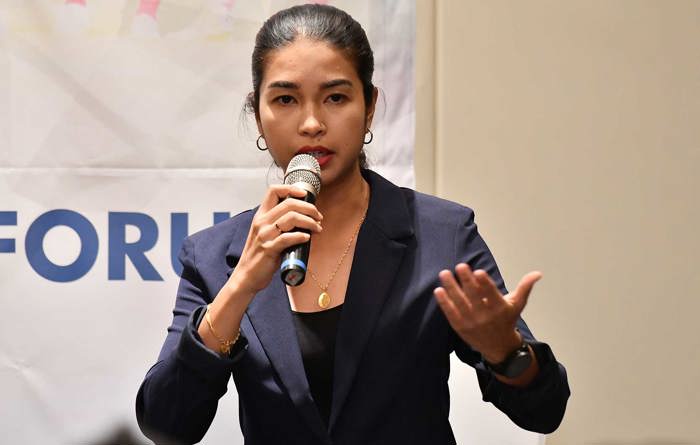
The PFAM held its first Women’s Football Week in October. It was a real positive step in recognising the women’s game. There was a dinner with the national team, a forum where we discussed what needs to be done to support our players and, most importantly, grassroots training for girls aged 14 years and below.
The event came together quickly this year, and I’m so proud of what we achieved in such a short space of time. However, in my mind this needs to be an annual event that gets better with each edition; I want to see bigger numbers, more activities, greater visibility, and I want to start planning it as soon as possible.
It was such a positive experience to give back to our community in this way, and hopefully inspire the up-and-coming generation of players. If we want to raise the game of women’s football in Malaysia, this is where we need to focus our energy – inspiring more young girls to fall in love with the game; to fill them with that passion to play, and that determination to represent their country.
PFAM President Safee Sali is the former national captain of the men’s team and a hero to many. He came by for the activation. This was not only a bolstering show of support, but it was also a positive example for the girls to see a men’s player that they look up to supporting the women’s game.
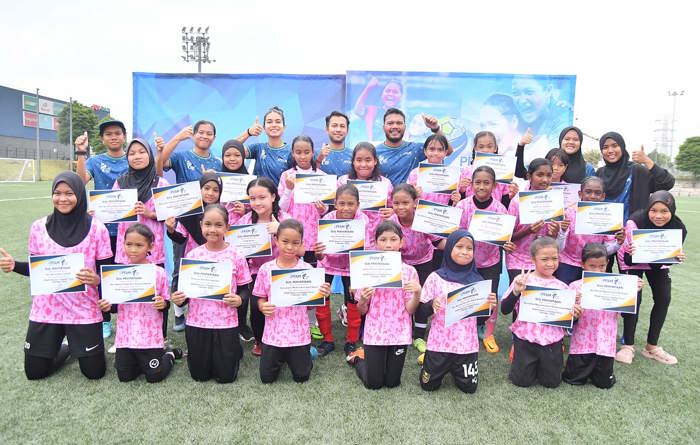
We need to see more of that. We need men’s clubs to establish women’s teams and champion the game to their existing fanbase. My national team-mates and I are part-time players, not only referring to my job in government which supports me financially, but also the actual time that we spend playing football. We don’t have professional clubs or tournaments to build our game over the season or challenge ourselves week in and week out, so we don’t train every day. The PFAM are fighting for us, driving to develop the women’s league, and they’re behind all the little steps we are taking in the right direction.
I am 34 years old, so the time for me to be a professional player in my home country has probably past, but that doesn’t mean that I can’t be a key player in the further development of women’s football in Malaysia. For me, money is secondary anyway. I only wanted the ability to play – and that’s all I have ever asked from the game. Now, I want more for the next generation.
I remember very clearly the moment I fell in love with football: I was playing on the side-lines of a game in which my father was playing. I hope that the activities of Women’s Football Week reach the young participants in the same way; that they develop that joyous core memory that sparks a lifelong passion for the sport.
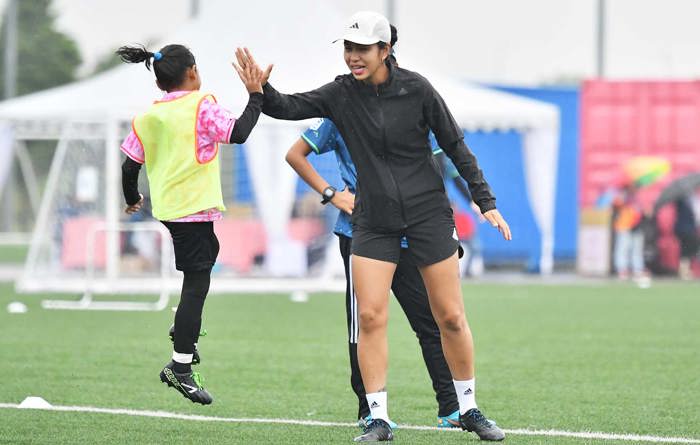
Of course, you can fall in love with football at any age, but if you start late, it’s much harder to grasp the basics and grow your game as a player. It’s much easier to establish and utilise basic techniques in your youth, and develop your talent – talent which could then strengthen the national squad selection.
In my mind, this is easily addressed by introducing football to girls as part of the school curriculum. It’s available to boys, so the infrastructure is there. It just needs to be opened to all students. This simple step would have a huge knock-on effect for the women’s game – not just for our talent pool, but in general popularity of the sport. It would diminish any taboo of parents letting their daughters participate in the sport and establish girls playing football as a cultural norm.
There are so many more opportunities now for budding players, such as equipment, academies, trainings sessions. And since 2005, they have had an established women’s national team to aspire to. When I was growing up, it was just my bare feet and a ball. If I can get to where I am now, then the sky is the limit for them. And I’m going to help them reach it.
